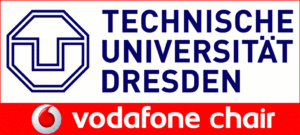

About the Project AI4Mobile
The project AI4Mobile is a research project funded by the Federal Ministry for Education and Research (BMBF), from the announcement
Artificial Intelligence in Communication Networks within the scope of the High-Tech Strategy of the German Federal Government.
Motivation
Powerful and flexible mobile networks are a key technology for numerous branches of industry. Many applications, for example in the fields of automated vehicles or mobile robotics, are highly dynamic and mobile. At the same time, they require extremely reliable communication with low latency. An important challenge is to ensure the required quality of service (e.g. a reliable data rate, no data loss, no delays) for each application. The wireless transmission of information is by nature subject to interference, which means that successful real-time transmission in classic, reactive mobile radio systems cannot be guaranteed. Forward planning of network resources and prediction of relevant quality of service parameters are therefore essential, especially for safety-critical functions. Given the immense complexity of the overall network, methods of artificial intelligence (AI) offer a promising approach here.
Goals and Procedure
The project AI4Mobile aims at developing methods that enable a robust prediction of the quality of service at high mobility using data from the entire mobile network. In combination with other data (application, environment and network data) the predicted quality of service information will be used to develop AI mechanisms for real-time network optimization. AI methods are particularly promising for resource management. In order to make use of existing knowledge in the field of mobile communications, the possibility of supplementing AI approaches with area-specific context information and of integrating expert knowledge into the design of learning processes will be investigated. This will enable a hybrid approach of classical algorithm development and artificial intelligence. The project investigates to what extent this approach can increase the security and robustness of mobile networks.
Innovations and Perspectives
The AI4Mobile solution can be used to predict critical quality of service parameters (e.g. data rate, delay) of a complete communication link between sender and receiver. This allows the implementation of proactive resource optimization and networking in all parts of the mobile infrastructure. An early detection of critical states ensures that the performance of the systems is maintained even if undefined states and faults occur. The security and robustness of the mobile radio network is significantly increased, which is essential for dynamic applications such as automated driving or mobile robotics. The project thus contributes to consolidating Germany's technological leadership, especially in the important automotive and industry 4.0 sectors.
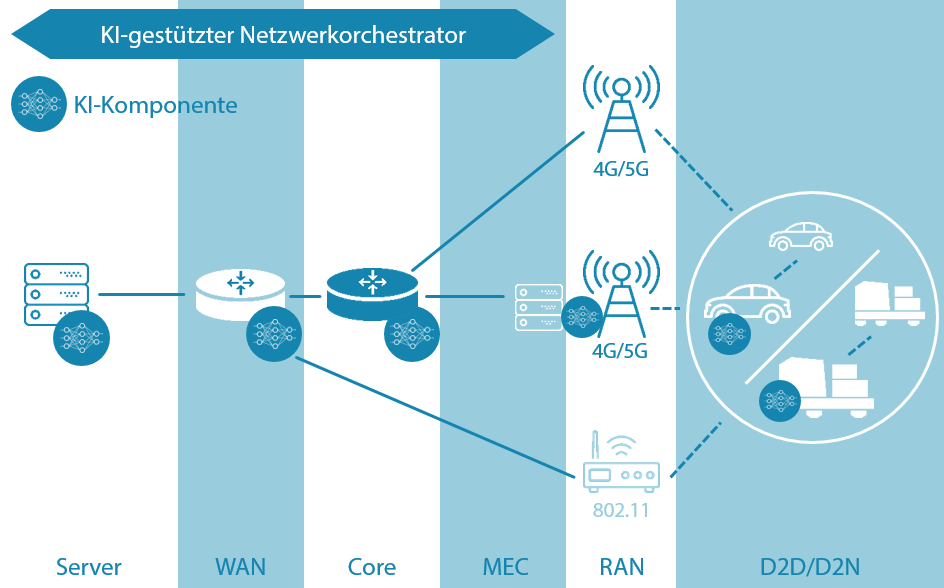
Artificial Intelligence in Heterogeneous Networks
Providing an end-to-end prediction of critical Quality-of-Service parameters, such as data rate and latency, is a core element of the envisioned AI4Mobile solution. Anticipating these parameters enables proactive resource optimization and interconnection in all parts of the mobile infrastructure.
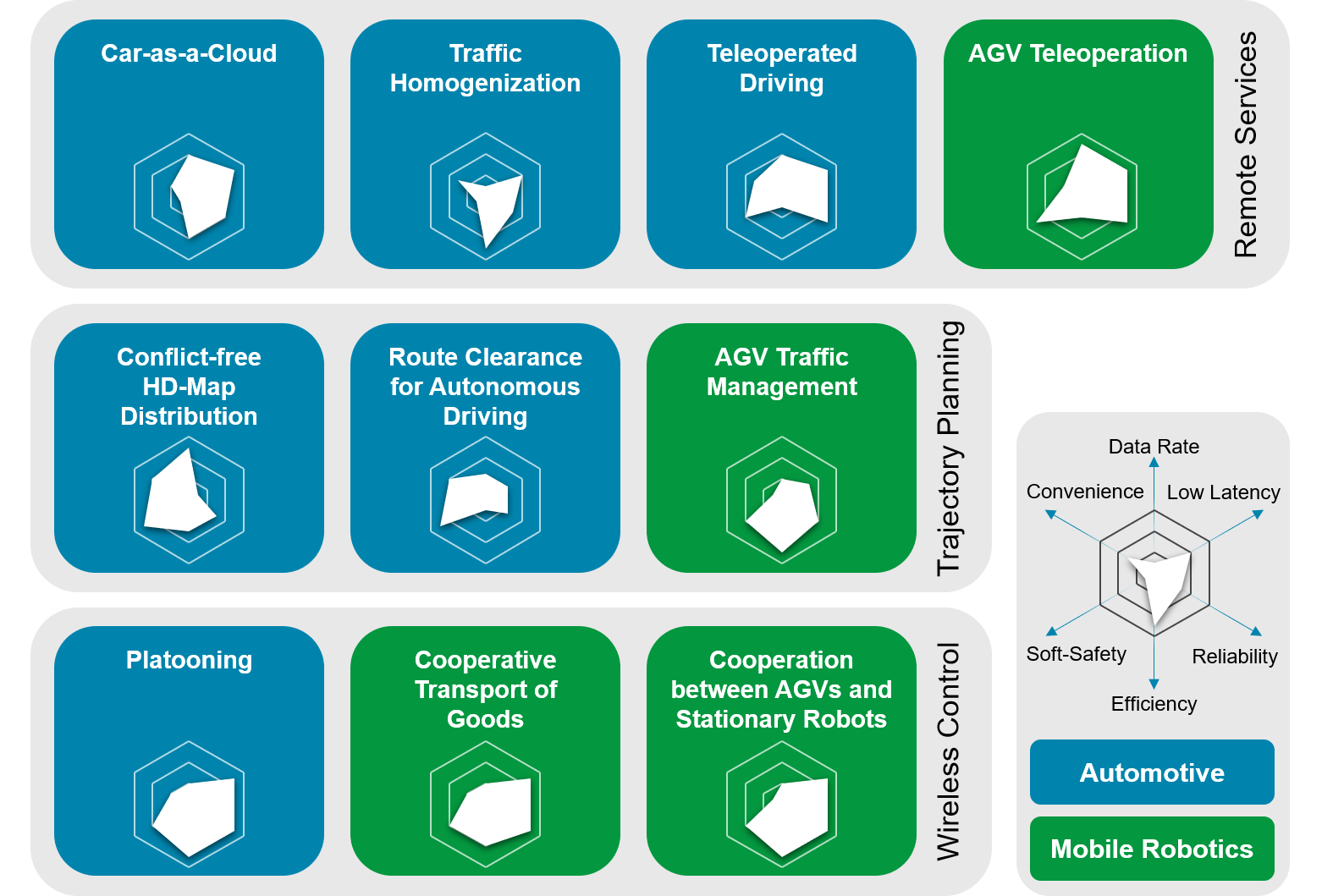
AI4Mobile Use Cases
As part of the project, ten use cases in the areas of transport and industry were identified and analyzed with regard to their respective requirements.
Highlights
The consortium has published several datasets on IEEE Dataport, which were collected through ambitious measurement campaigns
The Berlin V2X dataset offers high-resolution GPS-located wireless measurements across diverse urban environments in the city of Berlin for both cellular and sidelink radio access technologies, acquired with up to 4 cars over 3 days. The data enables thus a variety of different ML studies towards vehicle-to-anything (V2X) communication.
This measurement campaign was conducted for around 16h at an industrial site where an autonomous cleaning robot collected sensor data from the environment and communicated with a private cellular network.
iV2V covers 10h of sidelink communication scenarios between moving and static automated guided vehicles.
All vehicles are equipped with devices that generate background data traffic.
Various features from all parts of the communication system are recorded with a high temporal resolution, resulting in hundreds of megabytes of data.
Software and detailed publications are publicly available for all datasets
In October 2020, the first measurement campaign of the project was conducted at the Motorway A9 5G-ConnectedMobility measurement site near Nuremberg, Germany.
Measurements were conducted on five consecutive days with four vehicles travelling a total distance of 3300km.
At the measurement site, five base stations with two sectors each cover motorway, rural, and suburban areas. The non-public network is operated at 700MHz.
Mobile devices in each vehicle use dedicated software to generate data traffic and collect measurements.
Various features from all parts of the communication system are recorded with a high temporal resolution, resulting in several terabytes of data.
All vehicles are equipped with additional mobile devices that generate background data traffic.
Key Figures
Total Cost
Total Funding
Funding Rate
Months
Partners
Consortium




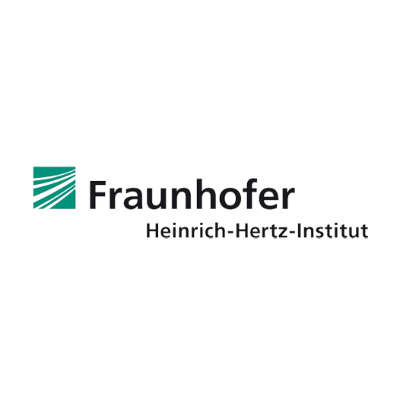

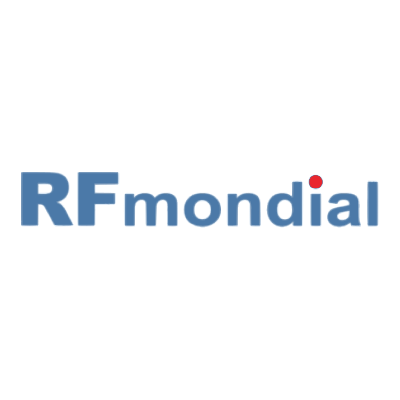
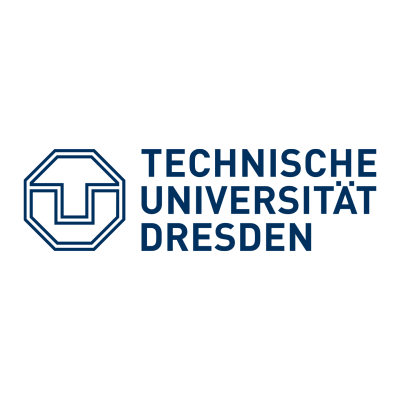
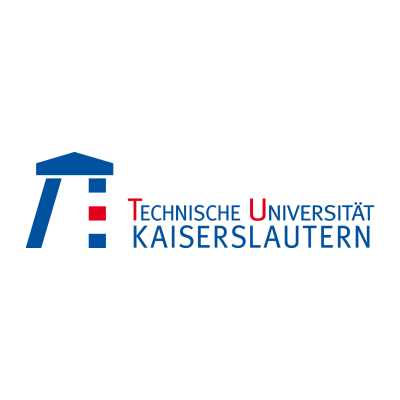
Publications
- D. Wang, A. Qiu, Q. Zhou, S. Partani, and H. D. Schotten, “Investigating the Impact of Variables on Handover Performance in 5G Ultra-Dense Networks,” EuCNC 2023, Gothenburg, Sweden, June 2023.
- F. Burmeister, A. Palaios, P. Geuer, A. Krause, R. Jacob, P. Schulz and G. Fettweis, “Deep Learning-Supported Kriging for Interpolation of High-Resolution Indoor REMs”, EuCNC 2023, Gothenburg, Sweden, June 2023.
- P. Geuer, A. Palaios, and R. Zhohov, “Cell- and Area-Based ML Models: Unlocking High Precision Models for Radio Access Networks,” 2023 IEEE Wireless Communications and Networking Conference (WCNC), Glasgow, Scotland, Mar. 2023.
- M. Parvini, A. Gonzalez, A. Villamil, P. Schulz and G. Fettweis, “Joint Resource Allocation and String-Stable CACC Design with Multi-Agent Reinforcement Learning,” 2023 International Conference on Communications (ICC 2023), Rome, Italy, May 2023
- W. Donglin, and Hans D. Schotten, “The Effect of Variable TTT, Density, and Velocity on Handover of 5G NR Ultra Dense Network” IEEE Conference on Standards for Communications and Networking (CSCN), Thessaloniki, Greece, 2022.
Privacy
While you are using this website, personal data of you will be processed by us as the person responsible for data processing and stored for the time necessary to fulfil the defined purposes and legal obligations. In the following we will inform you about what data is involved, how it is processed and what rights you have in this respect.
According to Art. 4 No. 1 of the General Data Protection Regulation (GDPR), personal data is any information relating to an identified or identifiable natural person.
This data protection information applies to data processing on all project websites of the project, as well as all services offered in connection with the project as a web service or as a mobile app (for better readability in the following: website), provided that reference is made to this data protection information.
Responsible in the sense of Art. 4 No. 7 GDPR:
Fraunhofer-Gesellschaft zur Förderung der angewandten Forschung e.V.
Hansastraße 27 c
80686 Munich
for its
Heinrich-Hertz-Institute HHI
Einsteinufer 37, 10587 Berlin, Germany
(in the following Fraunhofer-HHI)
| E-Mail: | datenschutz@zv.fraunhofer.de |
| Phone: | +49 30 310020 |
| Fax: | +49 30 31002-213 |
The data protection officer of Fraunhofer can be contacted at the above address in Munich, Germany, at Hd. Datenschutzbeauftragter or under datenschutz@zv.fraunhofer.de . If you have any questions about data protection law or your rights as a data subject, you can contact our data protection officer directly at any time.
You can call up our website without having to disclose information about your identity. The browser used on your end device merely automatically sends information to the server of our website (e.g. browser type and version, date and time of access) to enable the website to establish a connection. This also includes the IP address of your requesting terminal device. This is temporarily stored in a so-called log file and deleted after 4 weeks at the latest.
The IP address is processed for technical and administrative purposes of establishing and maintaining the connection, in order to guarantee the security and functionality of our website and, if necessary, to be able to pursue possible illegal attacks on it.
The legal basis for the processing of the IP address is Art. 6 para. 1 sentence 1 lit. f GDPR. Our legitimate interest is based on the security interest mentioned above and the need to ensure that our website is available without disruption.
We cannot draw any direct conclusions about your identity from the processing of the IP address and other information in the log file.
Furthermore, we use cookies when you visit our website. You will find more detailed explanations of this further down in this data protection information.
If we pass on personal data that we collect via the website to processors, we will inform you of this in this data protection information during the respective data processing operation, naming the specific recipient.
Furthermore, we will only pass on your personal data if
- you have explicitly given your consent pursuant to Art. 6 para. 1 sentence 1 lit. a GDPR
- this is necessary in accordance with Art. 6 para. 1 sentence 1 lit. b GDPR for the performance of a contract with you (for example, when passing on payment data to shipping companies for the purpose of delivering the goods you have ordered or when passing on payment data to payment service providers or credit institutions in order to carry out a payment transaction)
- there is a legal obligation for disclosure under Art. 6 para. 1 sentence 1 letter c GDPR.
The data forwarded may be used by the recipients exclusively for the purposes specified.
We use cookies on our website. These are small files that are automatically created by your browser and stored on your end device (laptop, tablet, smartphone or similar) when you visit our site. Cookies do not cause any damage to your terminal device, do not contain viruses, Trojans or other malware.
The cookie contains information that results in connection with the specifically used terminal device. This does not mean, however, that we obtain direct knowledge of your identity.
Der Einsatz von Cookies dient einerseits dazu, die Nutzung unseres Angebots für Sie angenehmer zu gestalten. So setzen wir z.B. sogenannte Session-Cookies ein, um eine SItzungssteuerung zu ermöglichen oder um Formulareingaben oder Warenkörbe während der Sitzung zu speichern. Session-Cookies werden spätestens mit dem Schließen Ihres Webbrowsers gelöscht.
The data processed by cookies is required for the above-mentioned purposes in order to safeguard our legitimate interests and those of third parties in accordance with Art. 6 para. 1 sentence 1 lit. f GDPR.
Most browsers automatically accept cookies. However, you can configure your browser so that no cookies are stored on your computer or so that a message always appears before a new cookie is created. However, disabling cookies completely may mean that you will not be able to use all the features of our website.
You have the right to:
- revoke your once given consent to us in accordance with Art. 7 Para. 3 GDPR to at any time. As a result, we may no longer continue to process the data which was based on this consent in the future;
- request information about your personal data processed by us in accordance with Art. 15 GDPR. In particular, you may request information on the purposes of processing, the category of personal data, the categories of recipients to whom your data have been or will be disclosed, the planned storage period, the existence of a right of rectification, erasure, restriction of processing or opposition, the existence of a right of appeal, the origin of your data, if not collected by us, as well as the existence of automated decision making including profiling and, if applicable, meaningful information on the details of such data;
- immediately request the correction of incorrect or incomplete personal data stored by us in accordance with Art. 16 GDPR;
- demand the deletion of your personal data stored with us in accordance with Art. 17 GDPR, unless the processing is necessary to exercise the right to freedom of expression and information, to fulfil a legal obligation, for reasons of public interest or to assert, exercise or defend legal claims
- demand the restriction of the processing of your personal data pursuant to Art. 18 GDPR, if the accuracy of the data is disputed by you, if the processing is unlawful, but you refuse to delete it and we no longer require the data, but you require it for the assertion, exercise or defence of legal claims or if you have lodged an objection to the processing pursuant to Art. 21 GDPR
- receive your personal data that you have provided us with in a structured, common and machine-readable format or to request its transfer to another responsible party in accordance with Art. 20 GDPR, and
- complain to a supervisory authority pursuant to Art. 77 GDPR. As a rule, you can turn to the supervisory authority of your usual place of residence or workplace or to the supervisory authority of our company headquarters.
Information about your Right of Objection under Art. 21 GDPR
You have the right to object at any time, for reasons arising from your particular situation, to the processing of personal data relating to you on the basis of Article 6 paragraph 1 letter e) GDPR (data processing in the public interest) and Article 6 paragraph 1 letter f) DPA (data processing based on a balancing of interests); this also applies to profiling of Article 4 No. 4 GDPR based on this provision.
If you object, we will no longer process your personal data unless we can prove compelling reasons for processing that are worthy of protection and outweigh your interests, rights and freedoms, or the processing serves to assert, exercise or defend legal claims.
If you object to the processing of data for the purpose of direct marketing, we will immediately stop processing. In this case it is not necessary to specify a special situation. This also applies to profiling, insofar as it is related to such direct marketing.
If you wish to exercise your right of objection, simply send an e-mail to datenschutzkoordination@zv.fraunhofer.de.
All data that you personally transmit is encrypted using the common and secure TLS (Transport Layer Security) standard. TLS is a secure and proven standard that is also used, for example, in online banking. You can recognise a secure TLS connection by the attached s at http (i.e. https://..) in the address bar of your browser or by the lock symbol at the bottom of your browser.
We also use appropriate technical and organisational security measures to protect your data against accidental or deliberate manipulation, partial or complete loss, destruction or unauthorised access by third parties. Our security measures are continuously improved in line with technological developments.
Due to the further development of our website and offers above or due to changed legal or official requirements it may become necessary to change this data protection information. The current data protection information can be called up and printed out at any time on the website.
Imprint
Heinrich-Hertz-Institute HHI
Einsteinufer 37, 10587 Berlin, Germany
is a legally non-independent institution of
Fraunhofer-Gesellschaft
zur Förderung der angewandten Forschung e.V.
Hansastraße 27 c
80686 Munich
Phone +49 89 1205- 0
Fax +49 89 1205-7531
E-Mail: info(at)zv.fraunhofer.de
Amtsgericht München
Eingetragener Verein
Register-Nr. VR 4461
Dr.-Ing Martin Kasparick
Phone: +49 30 31002-853
E-Mail: martin.kasparick@hhi.fraunhofer.de
Prof. Dr.-Ing. Reimund Neugebauer, President, Corporate Policy and Research Management
Prof. Dr. Ralf Boris Wehrspohn, Technology Marketing and Business Models
Prof. Dr. Alexander Kurz, Human Resources, Legal Affairs and IP Management
Dipl.-Kfm. Andreas Meuer, Finances and Digitalization
Copyright © by
Fraunhofer-Gesellschaft
All rights reserved.
All copyright for this Web site are owned in full by the Fraunhofer-Gesellschaft.
Permission is granted to download or print material published on this site for personal use only. Its use for any other purpose, and in particular its commercial use or distribution, are strictly forbidden in the absence of prior written approval.
Please address your requests for approval to:
Fraunhofer Institute for Telecommunications
Heinrich Hertz Institute
Einsteinufer 37, 10587 Berlin, Germany
Furthermore, you may download or print out a hard copy of this publication solely for the purpose of reporting on the Fraunhofer-Gesellschaft and its institutes, subject to the terms of use set out below.
Graphic alterations to picture motifs - except for cropping the main motif - are not permitted. It is always necessary to quote the source and send two free specimen copies to the above address. The use is free of charge.
We assume no liability for the content of external links. The operators of the linked pages are solely responsible for the content of their pages.
We make every effort to ensure that the content of this website is always up-to-date, correct and complete. Nevertheless, the occurrence of errors cannot be completely ruled out. Neither the Fraunhofer Institute nor the Fraunhofer-Gesellschaft accepts liability for the relevance, accuracy or completeness of the information and material offered in its web site. This refers to any material or immaterial damage suffered by third parties as a result of using this Web site.
Protected trademarks and names, images and texts are generally not identified as such on our web pages. However, the absence of such marking does not mean that it is a free name, a free image or a free text in the sense of trademark law.



